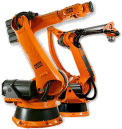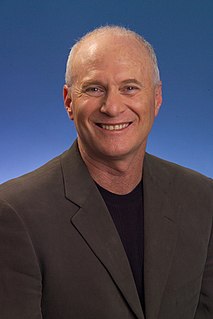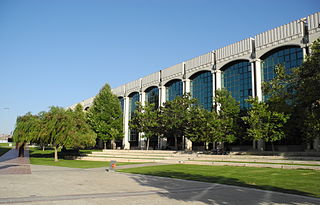
A digital audio workstation (DAW) is an electronic device or application software used for recording, editing and producing audio files. DAWs come in a wide variety of configurations from a single software program on a laptop, to an integrated stand-alone unit, all the way to a highly complex configuration of numerous components controlled by a central computer. Regardless of configuration, modern DAWs have a central interface that allows the user to alter and mix multiple recordings and tracks into a final produced piece.
An online public access catalog is an online database of materials held by a library or group of libraries. Users search in library catalog principally to locate books and other material available at a library. In simple language it is an electronic version of the card catalog. OPAC is the gateway to library's collection.
Customer support is a range of customer services to assist customers in making cost effective and correct use of a product. It includes assistance in planning, installation, training, troubleshooting, maintenance, upgrading, and disposal of a product.

OCLC, Inc., doing business as OCLC, is an American nonprofit cooperative organization "dedicated to the public purposes of furthering access to the world's information and reducing information costs". It was founded in 1967 as the Ohio College Library Center, then became the Online Computer Library Center as it expanded. In 2017, the name was formally changed to OCLC, Inc. OCLC and its member libraries cooperatively produce and maintain WorldCat, the largest online public access catalog (OPAC) in the world. OCLC is funded mainly by the fees that libraries pay for the many different services it offers. OCLC also maintains the Dewey Decimal Classification system.
In software testing, test automation is the use of software separate from the software being tested to control the execution of tests and the comparison of actual outcomes with predicted outcomes. Test automation can automate some repetitive but necessary tasks in a formalized testing process already in place, or perform additional testing that would be difficult to do manually. Test automation is critical for continuous delivery and continuous testing.

An integrated library system (ILS), also known as a library management system (LMS), is an enterprise resource planning system for a library, used to track items owned, orders made, bills paid, and patrons who have borrowed.
A virtual tape library (VTL) is a data storage virtualization technology used typically for backup and recovery purposes. A VTL presents a storage component as tape libraries or tape drives for use with existing backup software.
Innovative Interfaces, Inc. is a software company specializing in integrated systems for library management. Their key products include Sierra, Polaris, Millennium, and Virtua, with customers in 66 countries. Innovative was acquired by ProQuest in January 2020.
Oxford Libraries Information System (OLIS) is an online union catalog of books held by the libraries of the University of Oxford, England, which include the Bodleian Libraries group, and also those faculty libraries which are not members of the group, and the libraries of individual colleges. It currently operates the Geac ADVANCE integrated library system (ILS). Prior to 1996 it operated DOBIS/LIBIS software. Oxford University Library Services (OULS) issued a tender for new software in 2005 which culminated in the selection of the Virtua system from VTLS, but in August 2008 Oxford announced that the implementation would not go forward. In 2010 it was confirmed that Aleph from Ex Libris would replace Geac ADVANCE.
Evergreen is an open source Integrated Library System (ILS), initially developed by the Georgia Public Library Service for Public Information Network for Electronic Services (PINES), a statewide resource-sharing consortium with over 270 member libraries.
Enterprise forms automation is a company-wide computer system or set of systems for managing, distributing, completing, and processing paper-based forms, applications, surveys, contracts, and other documents. It plays a vital role in the concept of a paperless office.
Frederic Jay Glazer was an American librarian and director of the West Virginia Library Commission from 1972 to 1996. Nicknamed the "P.T. Barnum of libraries," he was an outspoken promoter of libraries who was instrumental in greatly expanding library service and funding throughout West Virginia. In 1999, American Libraries named him one of the "100 Most Important Leaders We Had in the 20th Century."
The Standard Interchange Protocol is a proprietary standard for communication between library computer systems and self-service circulation terminals. Although owned and controlled by 3M, the protocol is published and is widely used by other vendors. Version 2.0 of the protocol, known as "SIP2", is a de facto standard for library self-service applications.

The Library Corporation (TLC) creates and distributes automation and cataloging software to public, school, academic, and special library systems worldwide. Based in Inwood, W.Va., with additional offices in Denver, Singapore, and Ontario, the company is owned and operated by the same family that established it in 1974.

Jerry Kline is the founder and former chairman of Innovative Interfaces and SkyRiver Technology Solutions, both based in Emeryville, California, USA.
A library portal is an interface to access library resources and services through a single access and management point for users, combining the circulation and catalog functions of an integrated library system (ILS) with additional tools and facilities.

Ex Libris Group is an Israeli software company that develops integrated library systems and other library software. The company is headquartered in Jerusalem, and has ten other offices around the world. In October 2015, Ex Libris was acquired by ProQuest and is now a ProQuest company.
Pakistan Library Automation Group (PakLAG), a not-for-profit trust, came into existence in year 2000, when some young professionals from the field of Library & Information Science in Pakistan wanted to institutionalize their volunteer work. Lahore based activity soon spread all over the country and volunteers from other provinces and cities joined the efforts to promote the use of ICTs in libraries. PakLAG has its chapters in all four provinces and federal capital. There is no membership fee and no official sponsorship. The idea was to achieve the objectives by promoting the self-reliance and economical solutions.
VITAL is a software suite of digital asset management products by VTLS based on the open source Fedora architecture.
Discovery layer is a term for software used to search libraries. A library's discovery layer includes a search box that library users can type queries into, similar to a web search engine. In library science, this searching is called discovery. The results from discovery may include books and other print materials from the library's catalog, electronic resources such as e-journals or videos, and items stored in other libraries. The word "layer" indicates that the software is modular—it is front-end software, separable from an integrated library system (ILS).







